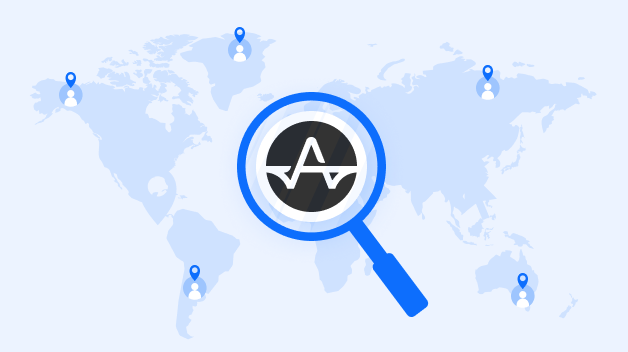Introduction
Every time you browse a website, sign up for a newsletter, or make an online purchase, your personal data is collected, stored, and processed. Most of the time, this happens quietly - often without you realizing how much information you’ve shared or who has access to it. That’s exactly why the General Data Protection Regulation (GDPR) was created: to give individuals in the European Union and beyond greater control over their personal information.
In this comprehensive guide, we’ll unpack what GDPR really means, how it protects you, and how WhiteBridge.ai supports data transparency and user empowerment. By the end, you’ll understand your rights, the responsibilities of organizations that process your data, and how you can take simple, effective steps to protect your privacy online.
What Is the GDPR and Why It Matters
The Origins of GDPR
The GDPR came into effect on May 25, 2018, as a groundbreaking privacy law designed to unify data protection across the European Union. Its primary mission is to safeguard individuals’ rights over their personal data - ensuring that organizations handle information lawfully, transparently, and for legitimate purposes only.
Why GDPR Is Relevant Worldwide
Even if you’re outside the EU, GDPR still affects you. Any business that collects or processes data from EU residents must comply. This global reach has made GDPR the gold standard for privacy protection, inspiring similar laws in countries like Canada, Japan, Brazil, and the United States (via state-level acts like California’s CCPA).
Understanding Your GDPR Rights
At its core, GDPR is about empowerment. It grants individuals eight fundamental rights that shape how your data can be used:
- Right to Access – You can request a copy of your personal data and learn how it’s used.
- Right to Rectification – If your information is inaccurate or outdated, you can have it corrected.
- Right to Erasure (“Right to Be Forgotten”) – You can request deletion of your data under certain conditions.
- Right to Restrict Processing – You may limit how organizations use your data without deleting it.
- Right to Data Portability – You can transfer your data between services (for example, moving your contacts from one app to another).
- Right to Object – You can refuse certain uses of your data, such as marketing or profiling.
- Rights Related to Automated Decision-Making and Profiling – You have the right not to be subject to decisions made purely by algorithms without human review.
- Right to Be Informed – Organizations must clearly tell you what data they collect and why.
Understanding and exercising these rights ensures that you stay in control of your digital identity - not the companies you interact with.
How GDPR Protects You in Practice
Transparency and Consent
Under GDPR, companies can’t hide data collection in fine print. They must clearly disclose:
- What personal data they collect
- Why they collect it
- How long they store it
- Who they share it with
Consent must be freely given, specific, informed, and unambiguous. That’s why most websites now ask you to accept cookies or manage consent preferences.
Accountability and Security
Organizations must implement strong security measures like encryption, pseudonymization, and data minimization. They’re also required to report any data breaches within 72 hours to authorities and affected individuals.
Penalties for Non-Compliance
GDPR violations can result in steep fines - up to €20 million or 4% of global annual revenue, whichever is higher. These penalties encourage companies to take privacy seriously and treat user data responsibly.
How to Exercise Your Data Rights
Taking advantage of your GDPR rights doesn’t need to be complicated. Here’s how you can do it effectively:
- Identify the Data Controller – Look for the company’s privacy policy to find contact details for their Data Protection Officer (DPO).
- Submit a Data Request – Write to them specifying what you want: data access, correction, deletion, or restriction.
- Verify Your Identity – Most organizations will ask for verification before processing your request.
- Keep Records – Always document your correspondence for proof of compliance.
- Escalate If Needed – If a company fails to respond within 30 days, you can file a complaint with your national Data Protection Authority.
WhiteBridge.ai offers privacy education resources and transparent data management features to help users understand these steps clearly and apply them effectively.
Legal and Ethical Considerations
GDPR doesn’t just regulate businesses - it establishes an ethical framework for digital society. It emphasizes:
- Respect for user autonomy
- Data minimization (only collecting what’s necessary)
- Security by design and by default
Even beyond legal compliance, ethical handling of data fosters trust and strengthens brand reputation. Companies that prioritize transparency and respect user privacy don’t just comply with GDPR - they stand out as trustworthy leaders.
How WhiteBridge.ai Promotes GDPR Awareness
At WhiteBridge.ai, we believe privacy education is the foundation of responsible technology. Our platform promotes data protection awareness through:
- Informative resources and interactive learning modules about data rights
- Guided tutorials on how to request or delete your data safely
- Transparent AI systems that respect GDPR principles from the ground up
By empowering users to understand their rights and providing companies with privacy-compliant tools, WhiteBridge.ai bridges the gap between technology and trust.
Conclusion
The GDPR isn’t just another regulation - it’s a movement toward a fairer, more transparent digital world. It empowers individuals, holds organizations accountable, and promotes responsible innovation.
Whether you’re a consumer, business owner, or digital citizen, understanding your GDPR rights is the first step toward a safer online experience.With WhiteBridge.ai, you gain the knowledge and tools to protect your personal data confidently - turning privacy awareness into everyday empowerment.
Your privacy and rights
If you’d like to opt out of WhiteBridge’s people-search database, you can submit a request here
If you’d like to see what data exists about you, you can request a free personal report here






